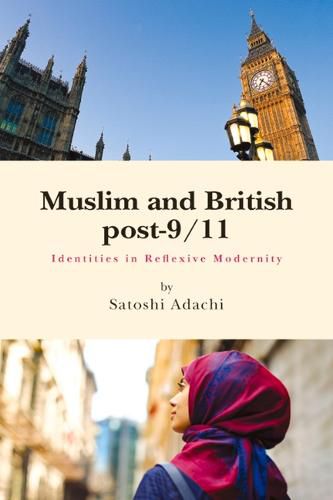Readings Newsletter
Become a Readings Member to make your shopping experience even easier.
Sign in or sign up for free!
You’re not far away from qualifying for FREE standard shipping within Australia
You’ve qualified for FREE standard shipping within Australia
The cart is loading…






How do second-generation immigrant Muslims, born and raised in the UK, perceive themselves and present their identities in the post-9/11 social environment, where Islamophobia is pervasive? Muslim and British post-9/11 addresses this question through research in Muslim communities in East London and Coventry. Second-generation Muslims in Britain must struggle with negative discourses against Muslims and construct identities in response. In the process, using various strategies, religious knowledge and informatization, they demonstrate the compatibility of being both British and Muslim within their local communities and in society at large. Satoshi Adachi advocates that the identity and social integration of young Muslims in British society today can be better understood through the frame of reflexive modernisation theory. From this perspective, he discusses diverse themes, including multiculturalism, women and agency, closed and open identities, information technology, the individualisation of faith, and the semantics of the hijab to describe Islam as an 'everyday lived religion'.
$9.00 standard shipping within Australia
FREE standard shipping within Australia for orders over $100.00
Express & International shipping calculated at checkout
How do second-generation immigrant Muslims, born and raised in the UK, perceive themselves and present their identities in the post-9/11 social environment, where Islamophobia is pervasive? Muslim and British post-9/11 addresses this question through research in Muslim communities in East London and Coventry. Second-generation Muslims in Britain must struggle with negative discourses against Muslims and construct identities in response. In the process, using various strategies, religious knowledge and informatization, they demonstrate the compatibility of being both British and Muslim within their local communities and in society at large. Satoshi Adachi advocates that the identity and social integration of young Muslims in British society today can be better understood through the frame of reflexive modernisation theory. From this perspective, he discusses diverse themes, including multiculturalism, women and agency, closed and open identities, information technology, the individualisation of faith, and the semantics of the hijab to describe Islam as an 'everyday lived religion'.